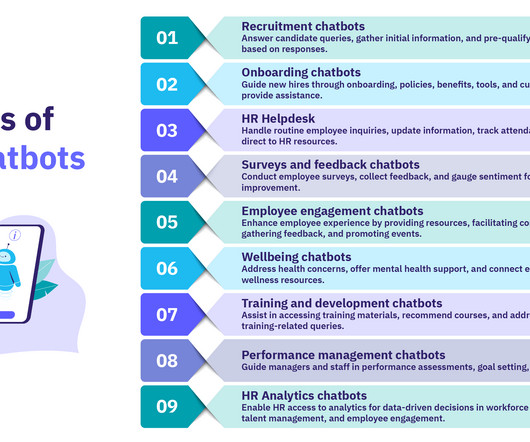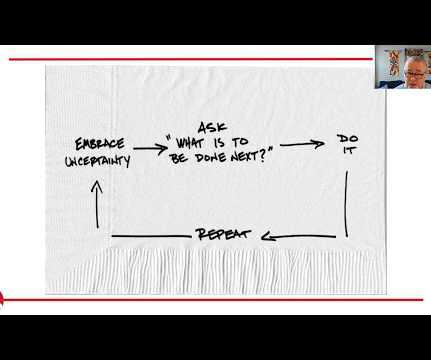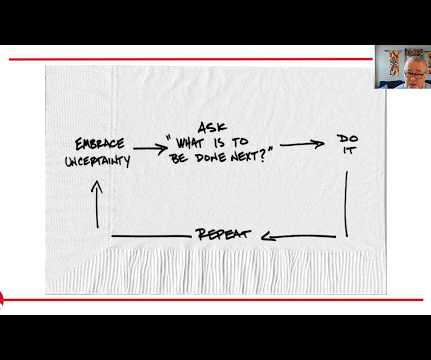Want a Career in Human Resources? Your In-Depth (2023) Guide
Analytics in HR
SEPTEMBER 7, 2023
Employee relations: HR provides accurate and timely information to employees to build good working relationships and boost employee engagement and retention. Workforce planning: Optimizing a company’s staffing levels to prevent shortages and surpluses in the workforce. The post Want a Career in Human Resources?

























Let's personalize your content